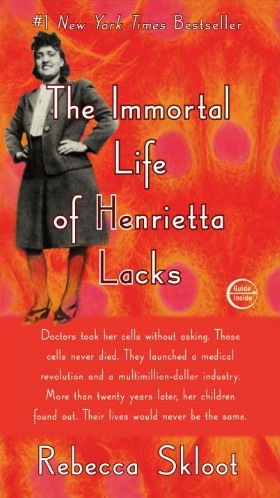Last week, scientists sequenced the genome of cells taken without consent from a woman named Henrietta Lacks. She was a black tobacco farmer and mother of five, and though she died in 1951, her cells, code-named HeLa, live on. They were used to help develop our most important vaccines and cancer medications, in vitro fertilization, gene mapping, cloning. Now they may finally help create laws to protect her family’s privacy — and yours.
I read the original book, “The Immortal Life of Henrietta Lacks” (Amazon referral) and it tells a fascinating story of medicine and ethics.

